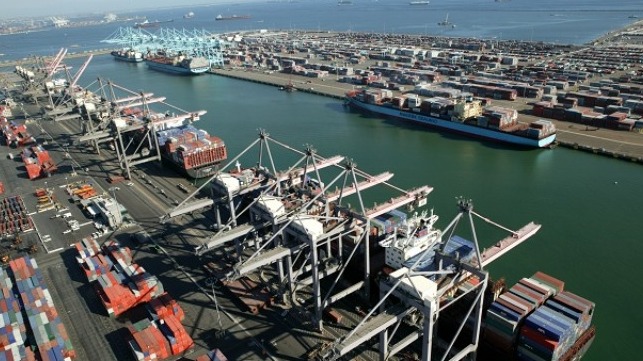Maersk: U.S. Tariffs Have Unexpected Effect on Trade Deficit

According to Maersk CEO Soren Skou, American imports of Chinese goods are rising, not falling, despite the Trump administration's sweeping tariff measures on Chinese-made imports. Conversely, Maersk's internal data suggests that China's imports of American goods have plummeted by a third in recent months.
The administration's tariffs were not intended to increase America's trade deficit with China, but the gap rose to a record monthly level of $40 billion in September, according to the Bureau of the Census. The deepening trade imbalance is an "ironic development," Skou said. "After Trump has turned up the volume, the U.S. has only increased their imports from China even more.”
The acceleration of American buying from China may be temporary, as it appears to be related to retailers' interest in stockpiling Chinese wares before the next round of tariffs takes effect. Skou warned that it will tail off sharply next year as vendors draw down this extra inventory. "There will definitely be a price for the container industry to be paid," he said in an earnings press conference Wednesday.
Overall, Maersk predicts that global containerized freight volumes will contract by 0.5 to 2.0 percent next year, with all growth erased by trade restrictions - primarily those imposed by China and the United States. To adapt, the line plans to reduce capacity on the transpacific trade lanes in 2019 to match demand. It also means that Skou plans for another year without significant M&A activity or big orders for new megaships.
Maersk's conservative investment strategy paid dividends last quarter: the firm's ocean freight business posted a $125 million increase in EBITDA over the same period last year, despite higher bunker prices. Increased freight rates, volume growth and the integration of Hamburg Sud boosted its revenue performance.
Vessel speed reductions - a cost-saving strategy that Maersk pioneered - will likely deepen as vessels get larger and bunker prices get higher, predicted Maersk EVP Soren Toft in the firm's earnings call. Low sulfur fuel oils formulated for the post-2020 bunkering market will be more expensive than today's HFO, creating an incentive for operators to reduce speed and increase fuel efficiency. ULCVs are particularly well-suited to sailing on major trade lanes at low speeds, since they carry much more cargo volume.
